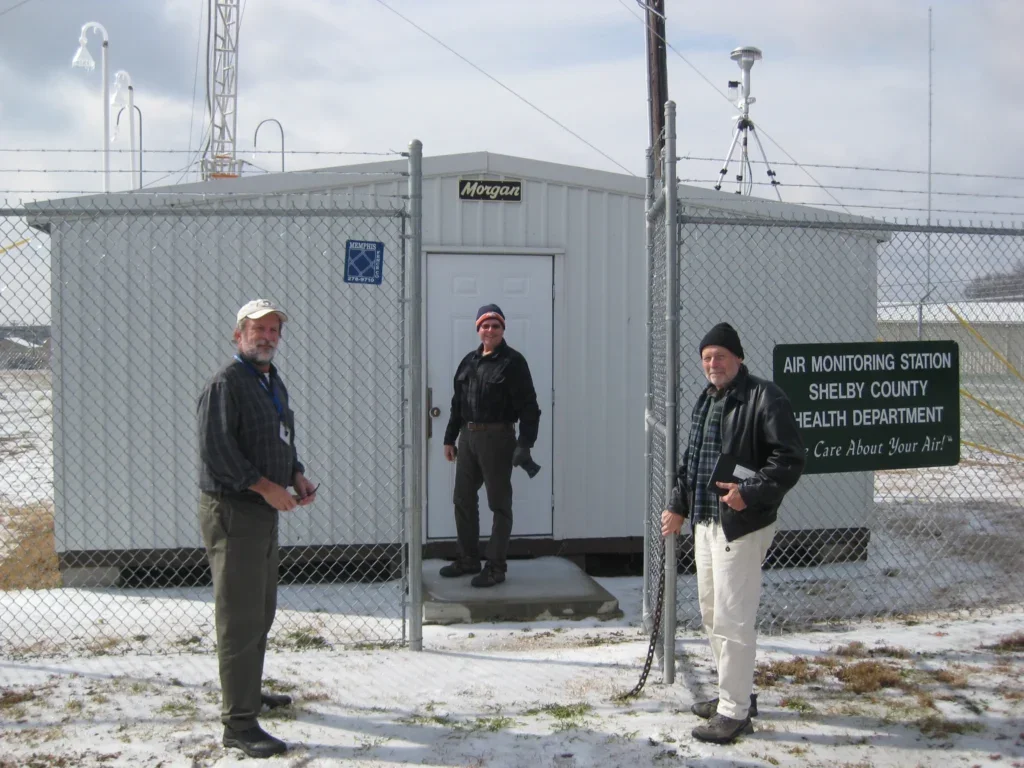The JPB Environmental Health Fellowship Program
A new generation of compassionate research scholars committed to solving complex environmental health challenges from multiple perspectives
Department of Environmental Health
401 Park Drive, 4th Floor WEST, 404N
Boston, MA 02215
Fellows
Since 2014, we’ve grown to support 35 Academic Fellows and 9 Agency Fellows across three cohorts, fostering a diverse network of scholars from disciplines such as Anthropology, Epidemiology, Environmental Science and Engineering, Environmental Economics, Psychology, and Urban Planning, all dedicated to creating healthier and more equitable communities.
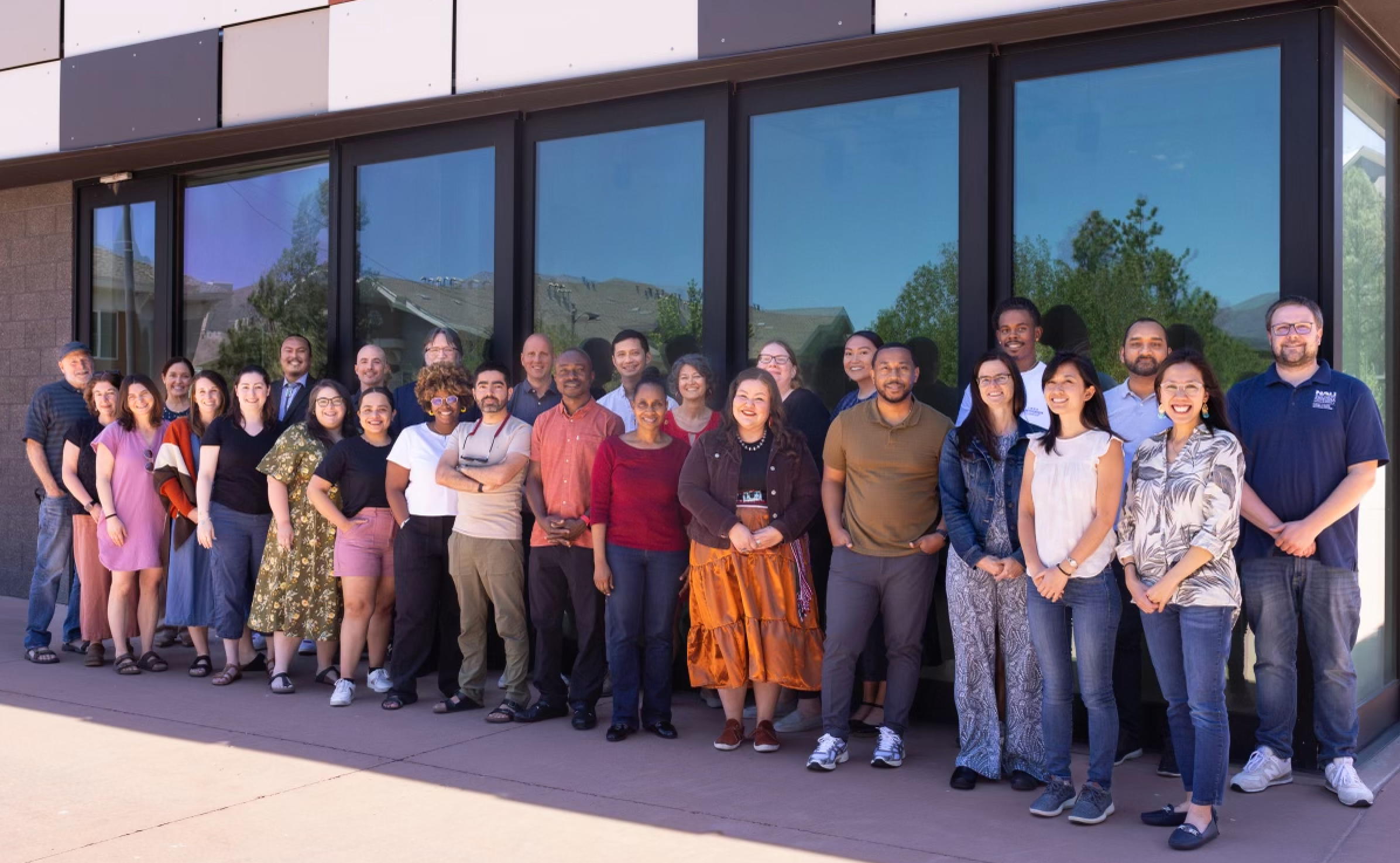
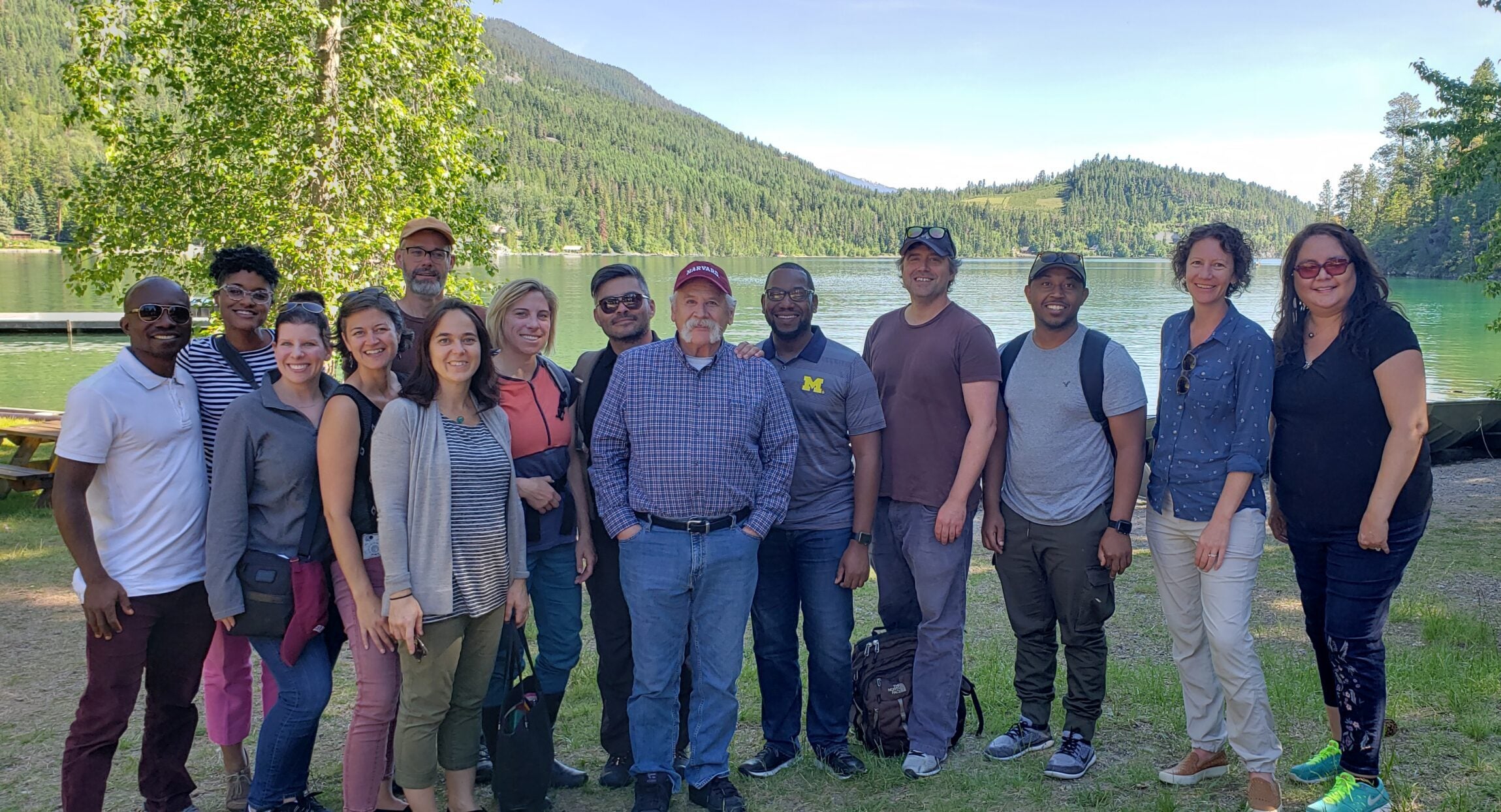
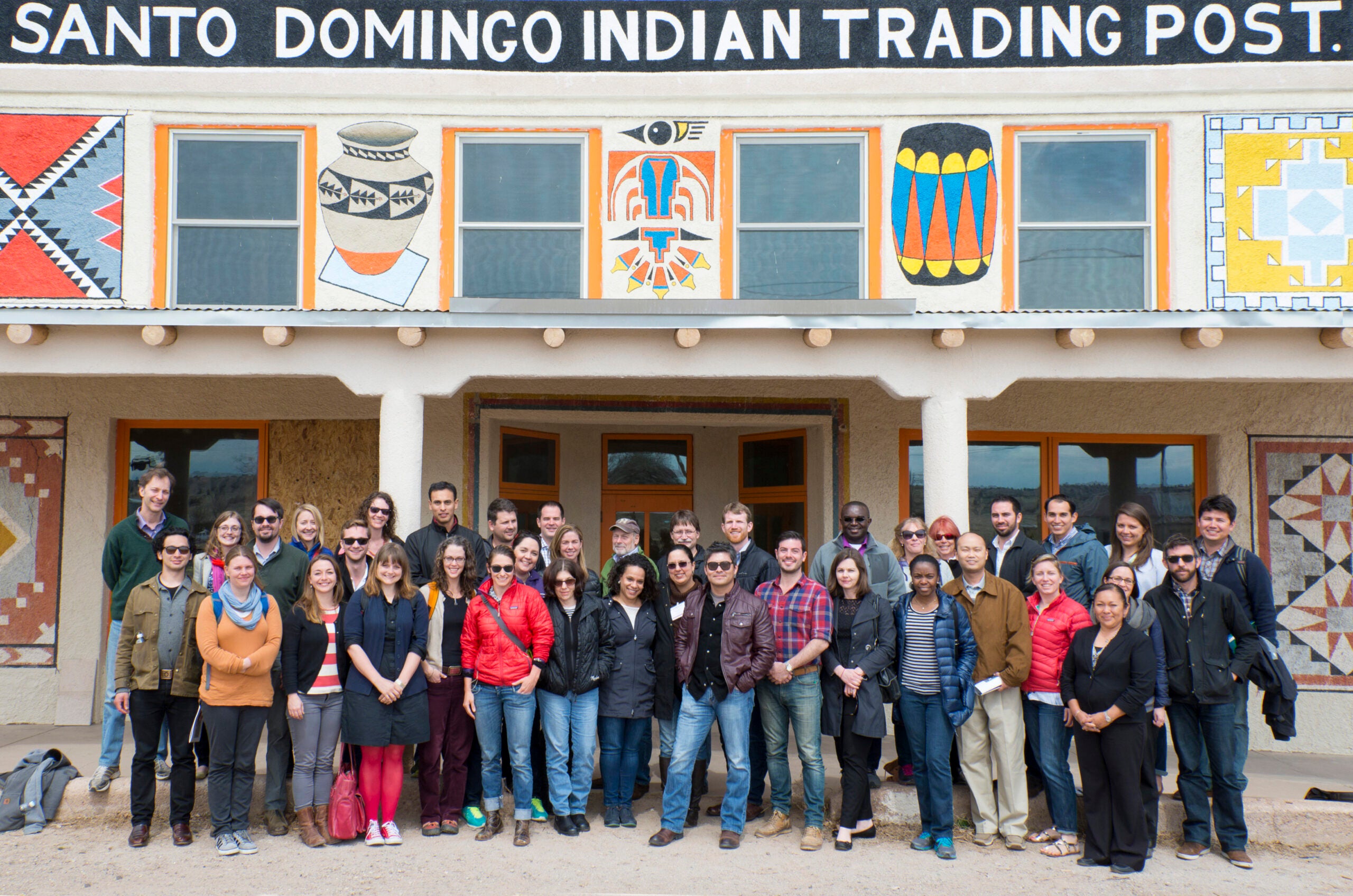
Cohort III, 2022 – 2026

Fellowship Project: Using a Risk Cup approach to evaluate vulnerabilities associated with community water systems in the US
Dr. Katherine Alfredo has extensive international experience that includes two US Fulbright Fellowships. Prior to joining the faculty at USF, she was the Research Program Manager at DC Water focused on the difficulties large, urban utilities face in ensuring a constant supply of high quality, potable water. She holds a Professional Engineering license in the state of Virginia. Dr. Katherine is keen to develop studies through the JPB Fellowship that would allow her to understand the relationship between actual and perceived drinking water risk on a household’s water source and home water treatment technology decisions.
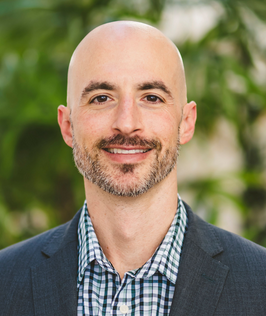
Fellowship Project: Exposure to heavy metals among Indigenous people who inject methamphetamine
Michael (Mike) Anastario is an Assistant Professor of Health Sciences at Northern Arizona University. Mike is a sociologist who draws on his research experience with ethnographic and quantitative methods to investigate how sequential phenomena concerning human-chemical interactions shape and reflect rural health disparities. He is currently focused on developing life history calendars that retrospectively assess: 1. Occupational and agrichemical exposure sequences among foreign-born agricultural workers in the US; and 2. Polysubstance use sequences among Indigenous people who use injection drugs. He is interested in the ways that everyday storytelling can inform the development of quantitative methods used in rural and environmental health research. Mike earned his PhD in Sociology from Boston College.
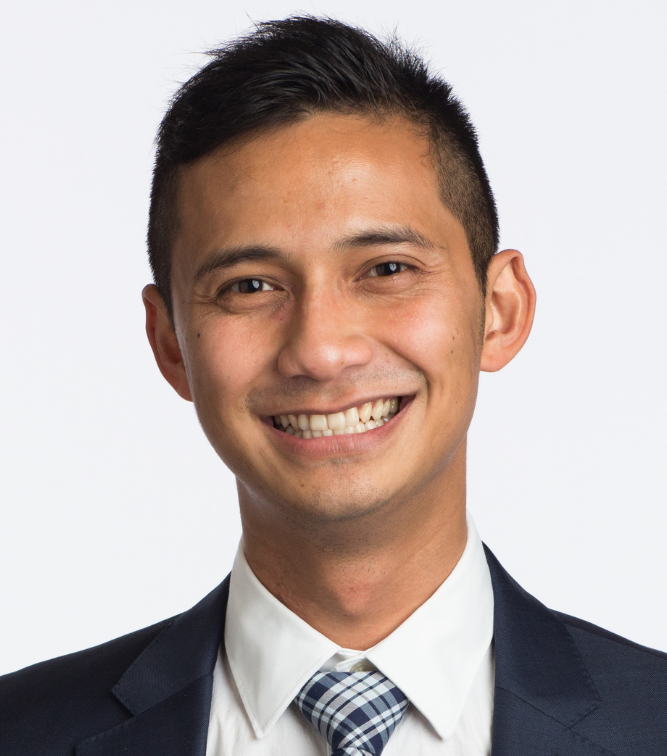
Fellowship Project: PFAS exposures, social factors, and bioactive lipid pathways to estimate antecedent risk profiles of depressive symptoms
Dr. Max Aung is an Assistant Professor in the Division of Environmental Health at the University of Southern California (USC). He is also co-director of the EH MATTERS program at USC. Dr. Aung is an alumnus of the Agents of Change in Environmental Justice Fellowship as well as the RWJF Health Policy Research Scholars Fellowship. His research focuses on applying data science frameworks to understand potential mechanisms linking chemical mixtures to health across the life course and pursue environmental justice. He specifically integrates environmental exposures with multi-omics data and social determinants of health in diverse prospective cohorts to better understand mechanisms linking the human exposome to maternal and child health outcomes, including neurodevelopment and behavioral health.
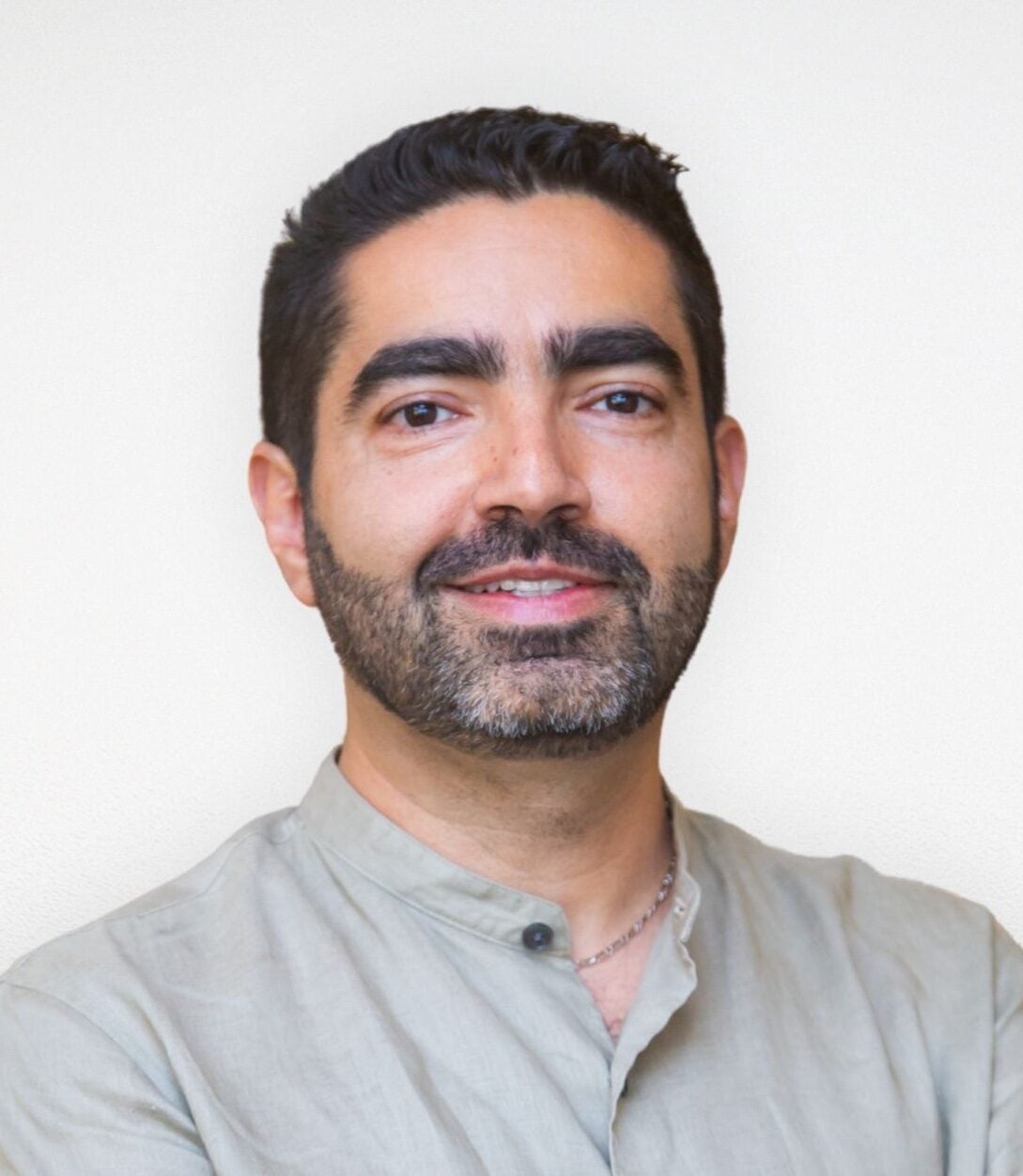
Fellowship Project: A mechanistic basis for the short-term exposure effects of UFP on cognitive function
As Director of the Climate Adaptive and Restorative Environments (CARE) Lab, Dr. Cedeño Laurent’s scientific and professional goal is to contribute to the creation of data-driven solutions in the built environment that help us address climate change and social environmental injustice. Dr. Cedeño Laurent has focused his research on advancing the understanding of mechanisms by which climate changed-related environmental exposures impact health, productivity, and safety. He has leveraged the data collection potential of novel exposure assessment methods in intervention-based, quasi-experimental studies and strengthened the evidence linking energy efficiency opportunities in buildings to public health benefits. He has documented the negative impacts of indoor heat and indoor pollution exposures on cognitive function and developed ecologic momentary assessment tools to conduct prospective observational studies that combine environmental sensors and wearable devices. Cedeño Laurent received a Doctor of Science degree in environmental health from the Harvard School of Public Health, a Master of Science degree in energy engineering from Aachen University in Germany, and a Bachelor of Science degree in mechanical engineering from Monterrey Tech in Mexico.
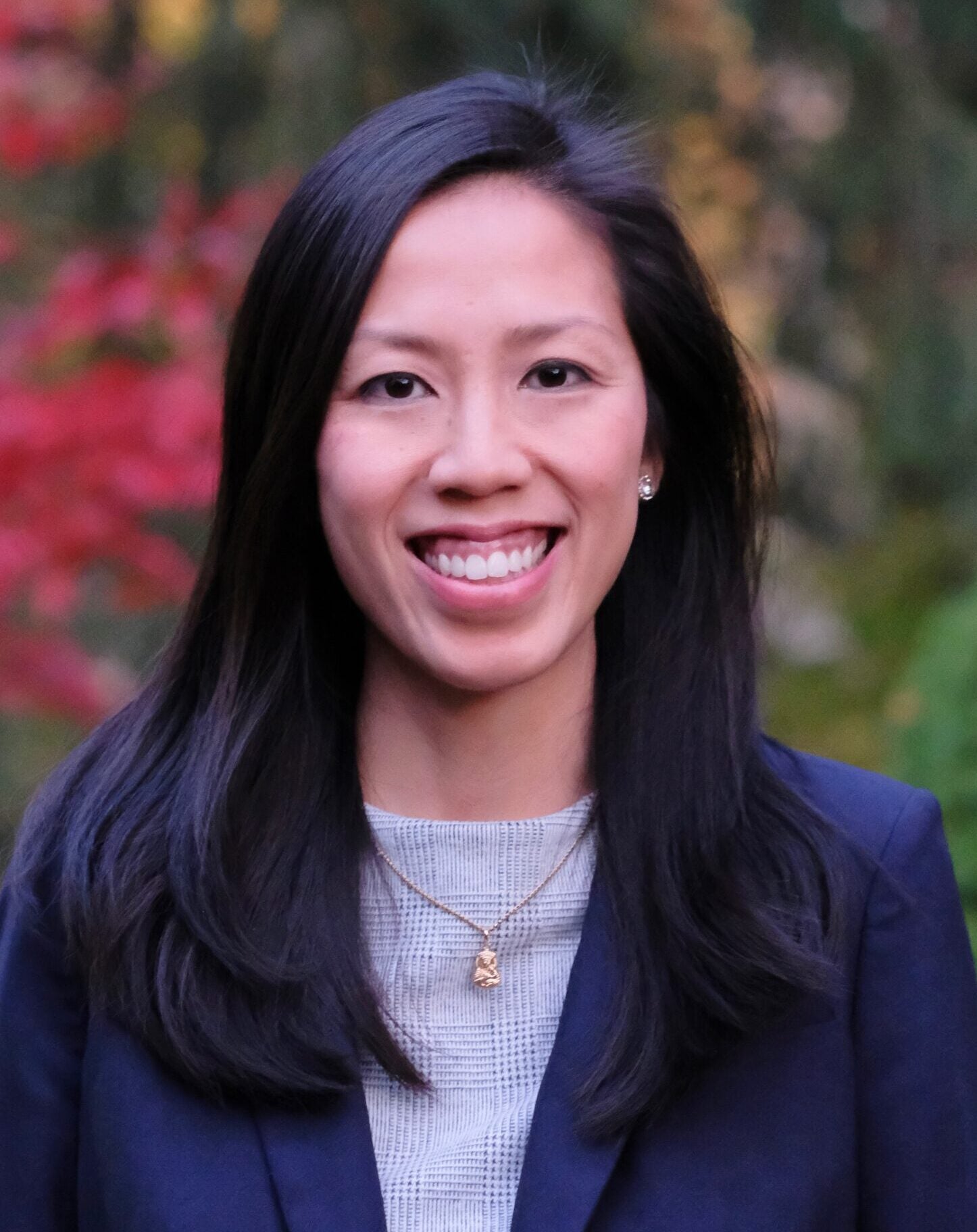
Fellowship Project: Social and Environmental Drivers of Gestational Diabetes Mellitus Among Asian Immigrant Women
MyDzung T. Chu is a Faculty Researcher at the Center for Community-Engaged Medicine in the Institute for Clinical Research and Health Policy Studies and the Director of the ADAPT (Addressing Disparities in Asian Populations through Translational Research) Coalition at Tufts Clinical and Translational Science Institute. Trained as an environmental and occupational epidemiologist, she is interested in community-engaged research on social-structural and environmental determinants of health for Asian and immigrant populations, particularly in the built environment. She is currently collaborating with community partners to investigate the influence of acculturation and environmental risk factors on the gut microbiome for Asian immigrants during pregnancy, and to evaluate cultural responsiveness of existing mental health resources for Asian populations in Greater Boston. She is also on the Board of the Healthy Building Network. Previously, she completed a postdoctoral fellowship at the George Washington University where she examined the impact of federal housing assistance on blood lead levels using novel national data linkages.
She received her PhD in Population Health Sciences from Harvard University, a MSPH in Environmental Health and Epidemiology from Emory University, and a BA in Neuroscience from Smith College.
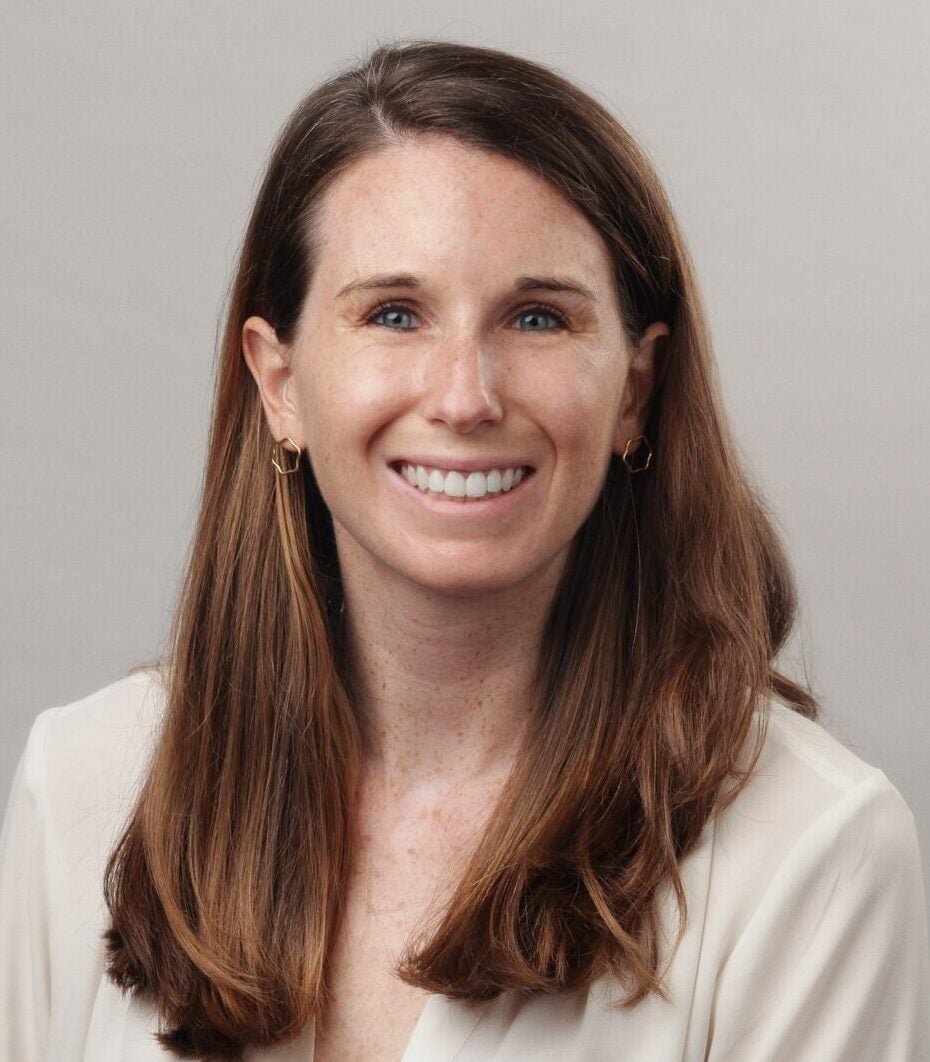
Fellowship Project: Cross-sectional study assessing sociopolitical stress
Stephanie Eick is an environmental and reproductive epidemiologist by training. Her research focuses on the health effects of environmental chemical and non-chemical (i.e., psychosocial) stressors during pregnancy. She has a particular interest in joint effects and understanding how non-chemical stressors can amplify the harmful effects of chemicals. She is also interested in biomarkers of stress response, such as oxidative stress and inflammation, and better understanding the biological mechanisms leading to adverse pregnancy and child health outcomes. Prior to joining Emory, Dr. Eick was a postdoctoral scholar at the University of California, San Francisco with the Program on Reproductive Health and the Environment. She received her PhD in epidemiology from the University of Georgia and her MPH in epidemiology from Emory University. She is involved with multiple ongoing, prospective birth cohorts.

Agency Fellow
Dr. Michael Garvey is an economist at the U.S. Department of Energy working in the Office of Energy Justice Policy & Analysis. Currently, Michael liaisons between DOE and the offices awarding solar and wind renewable energy projects to implement the aims of President Biden’s Justice40 Initiative. Previously, he was a macroeconomic policy analyst at the Washington Center for Equitable Growth. Prior to joining Equitable Growth, Garvey interned at the National Oceanic and Atmospheric Administration as a NCAS-M research fellow, analyzing the economic impacts of climate change. Garvey received his Ph.D. from Howard University, and his research agenda focuses on analyzing the economic effects of climate change with particular interest in underrepresented communities. Garvey earned an M.A. in economics, an M.S. in project management, and a B.S. in business management from Virginia State University.
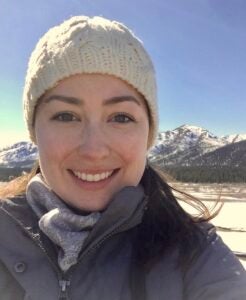
Agency Fellow
Dr. Lauren E. Gentile is a geographer and environmental social scientist with the Office of Air and Radiation, Office of Atmospheric Protection, Climate Change Division (CCD) at the U.S. Environmental Protection Agency. Her research interests center on the interactions between humans and the environment, applying a spatial and social science lens to climate change impact analyses through maps, indicators, and models. She currently works on a range of analytical efforts, including the Climate Change Impacts and Risk Analysis (CIRA) and Climate Change Indicators projects, as well as on science communications as a co-lead in building and managing EPA’s new Climate Change Website. She also serves as lead on climate change adaptation for EPA’s Office of Air and Radiation. Before joining CCD, she was a contractor for NOAA’s National Marine Fisheries Service at the Northeast Fisheries Science Center, Social Sciences Branch where she conducted research on the socioeconomics and wellbeing of fishing communities. She was also a John D. Knauss Fellow in NOAA’s Climate Program Office working at the interface of science, policy, and management.
Lauren received a Ph.D. in Environmental Social Science from Arizona State University, a Master of Environmental Law and Policy from Vermont Law School, and a Bachelor of Arts from University of Miami.
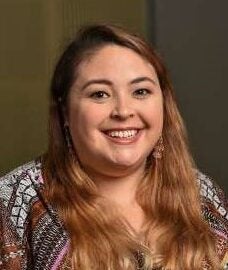
Agency Fellow
Veronica Eva Garrison is a government researcher (Analyst and Team Lead; Data and Research) with the U.S. Department of Housing and Urban Development, Office of Policy Development & Research, Office of Research, Evaluation, and Monitoring. Veronica joined the Federal government in 2014 as a Science, Technology, Engineering, and Math (STEM) Presidential Management Fellow under the Obama administration. At HUD, Veronica leads in-house research initiatives focused on substandard housing and housing as a social determinant of health using data linkage approaches. Her research focuses on quantifying the unique health characteristics and social needs of HUD-assisted children, youth, and families. Prior to joining HUD, Veronica was a Child Health Program Manager at the Association of Maternal and Child Health Programs (AMCHP).
Veronica is also a Bloomberg Fellow via the Bloomberg American Health Initiative (BAHI), a training initiative that seeks to provide world-class public health training to individuals in organizations tackling critical challenges facing the United States.
Veronica received a Master of Public Health in maternal and child health from the George Washington University in 2013 and holds a B.S. in Public Health from the University of Georgia.
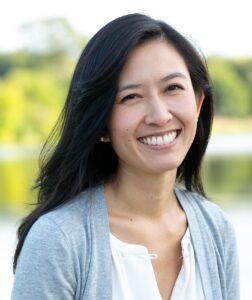
Fellowship Project: Legacy effects of historical redlining on Black maternal life course heavy metal exposure and maternal-infant health
Dr. Betty Lin’s research focuses on clarifying why children with social disadvantage experience disparities in mental and physical health outcomes. She is especially interested in how social and environmental factors related to social disadvantage (e.g., stress and distress, racism and discrimination) influence children’s social and emotional development beginning as early as the prenatal and early childhood years. Her research investigates (1) how early life social and environmental exposures may calibrate children’s developing stress response systems, (2) how children’s stress responsivity in turn may transact with child, family, and community factors to confer risk, resilience, and/or adaptation, and (3) how these processes may contribute to the health disparities in marginalized populations. Her research addresses how this stress responsivity may manifest behaviorally, such as in children’s temperament, and physiologically, such as in children’s sympathetic, parasympathetic, and adrenocortical responding. Ultimately, the goal of her research is to clarify the developmental processes that promote health and well-being in children with social disadvantage.
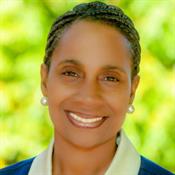
Fellowship Project: Water insecurity framework
Na’Taki Osborne Jelks is an assistant professor at Spelman College. She also is the manager for Community and Leadership Development Programs for the National Wildlife Federation and chair of the West Atlanta Watershed Alliance, an organization committed to ensuring environmental justice in southwest and northwest Atlanta’s African-American neighborhoods. An environmental engineer by training, Osborne Jelks is committed to being a social change engineer. Osborne Jelks is a nationally-recognized leader in engaging urban communities and youth of color in environmental stewardship through hands-on watershed and land restoration initiatives, environmental education, and training.
In 2001, Jelks co-founded the Atlanta Earth Tomorrow® Program, National Wildlife Federation’s multi-cultural, youth environmental education and leadership development program that engages urban youth in investigating causes of environmental challenges, helps them connect to nature, fosters their leadership of youth-led community action projects, promotes civic engagement, and nurtures leadership skills for building personal environmental stewardship.
Jelks is an alumna of Spelman College and Emory University and is currently a doctoral candidate at the Georgia State University School of Public Health.
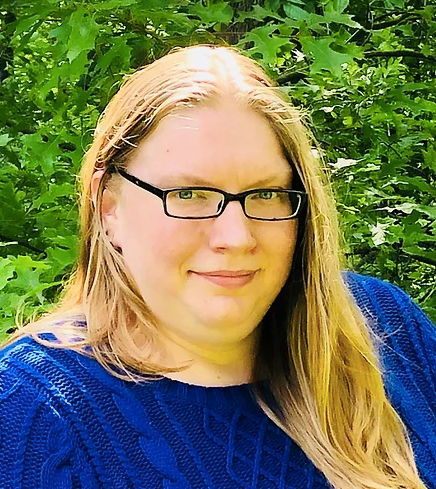
Fellowship Project: Building Community Air Quality Research Capacity in the Mississippi Delta
Courtney Roper is an Assistant Professor of Environmental Toxicology and Assistant Research Professor in the Research Institute of Pharmaceutical Sciences in the University of Mississippi’s School of Pharmacy. Her research group is focused on understanding air quality, particularly in the rural South. Through a combination of analytical chemistry, developmental toxicology, and epidemiology techniques her lab robustly characterizes air pollutants. The goal of this research is to provide data necessary for exposure assessment and risk mitigation strategies to protect human health. Courtney earned her PhD from the University of Pittsburgh where she was involved in molecular and environmental toxicology research. She then became a NIEHS-funded postdoctoral researcher at Oregon State University in developmental toxicology and environmental chemistry before moving to the University of Mississippi for her current position. She teaches courses on toxicology, environmental health, and science communication.
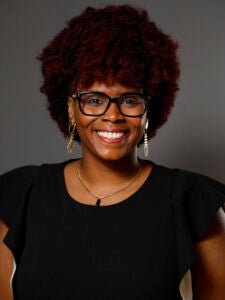
Fellowship Project: Food, Energy, and Water Insecurity in the Context of Compounding Disasters
Dr. Anaís Delilah Roque Antonetty (she/her/ella) is an environmental social scientist and disaster anthropologist that studies resource insecurity and health in the Anthropocene. Currently, her research agenda is focused on how households and communities experience, prepare for and respond to food, energy, and water insecurity in the wake of a hazard (e.g., geophysical, climatological) or disaster. Dr. Roque is also interested in the health outcomes of such experiences and the extent that strategies to address insecurity shape pathways to better or worse health. Trained as a mixed methods scholar, Dr. Roque has used interviews, survey, photovoice, social network, secondary data, participatory mapping, amongst others in her research. Inspired by scholarship that embraces diverse epistemological approaches, Dr. Roque is part of several interdisciplinary and transdisciplinary teams that advance research at the intersections of environmental behaviors, community resilience, social vulnerability, climate equity and justice, and community-based collaboration. She conducts research in Puerto Rico, Phoenix (AZ) and the U.S. Mexico Borderlands.
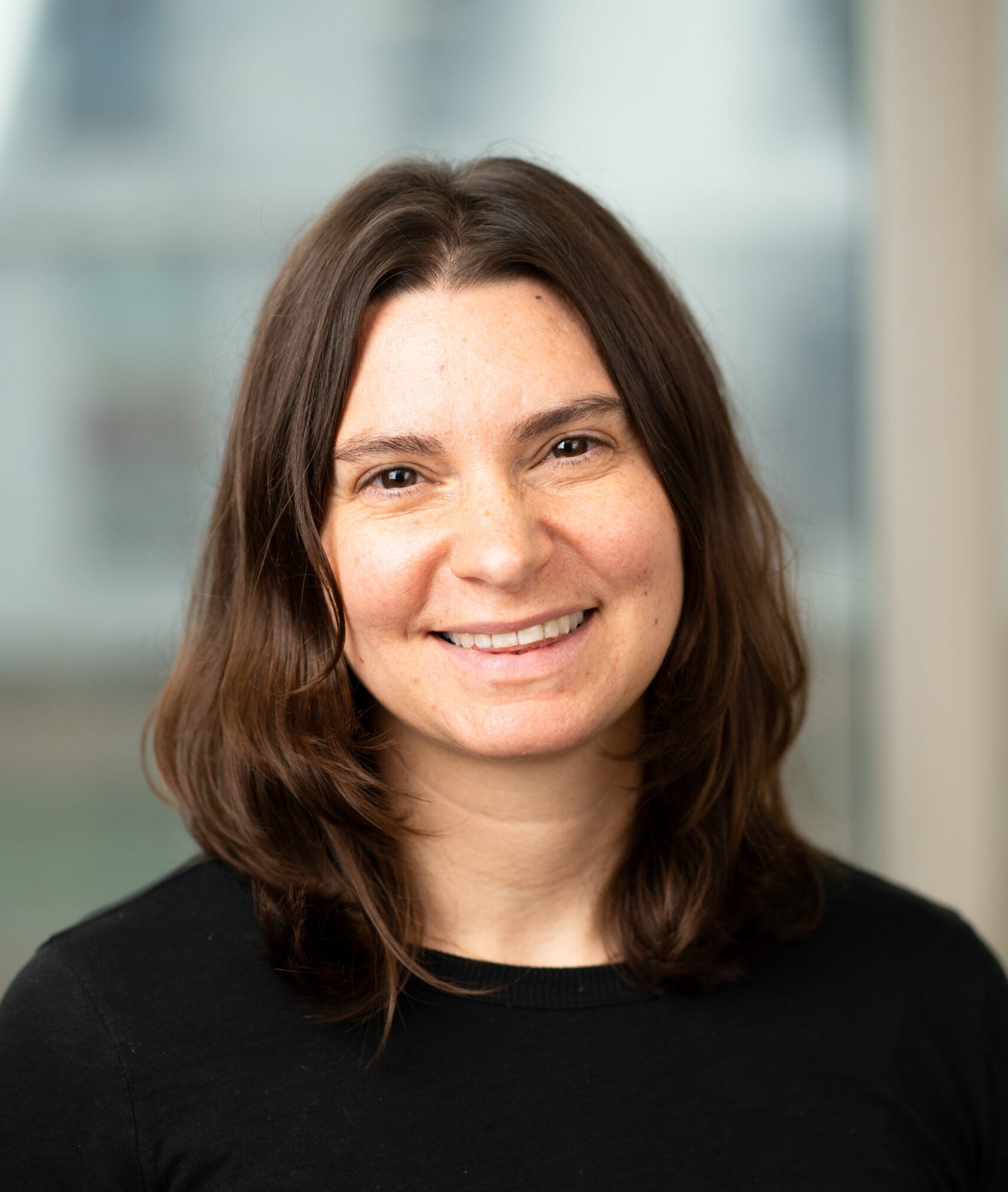
Fellowship Project: Extreme heat, associated adverse health outcomes, and barriers to heat-health protective behaviors in restaurant and service workers and managers in Philadelphia, PA
Leah Schinasi is an environmental and occupational epidemiologist and an Assistant Professor of Environmental and Occupational Health at Drexel University’s Dornsife School of Public Health. She is an affiliate of the Dornsife School of Public Health’s Urban Health Collaborative and a strategic council member of the Ubuntu Center on Racism, Global Movements, and Population Health Equity at Drexel University. Currently, Leah conducts research at the intersection of climate change, climate adaptation, health, and environmental justice. Among her recent research projects are a study elucidating optimal upper thresholds for safe residential indoor temperatures and energy-efficient and health promoting housing interventions within the context of extreme heat conditions, and an investigation of racial, ethnic, and socioeconomic disparities in occupational heat exposure.
Leah earned her MSPH and PhD in Epidemiology from the Gillings School of Global Public Health at the University of North Carolina at Chapel Hill. She conducted her postdoctoral training at the International Agency for Research on Cancer in Lyon, France and in the Department of Environmental and Occupational Health at the Dornsife School of Public Health at Drexel University.
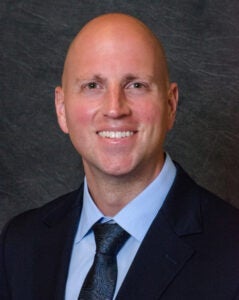
Fellowship Project: Testing efficiency and accessibility using a novel bone lead test
Dr. Aaron Specht is an Assistant Professor in the School of Health Sciences at Purdue University. His research focuses on the development, application, and understanding of exposure assessment for elemental and radiation exposures. His work focuses on increasing accessibility and cost effectiveness of exposure assessment techniques — making biomarker measurements on site in seconds. These non-invasive, portable, and handheld techniques can be done on almost anything including: nail, bone, or hair. With a more powerful benchtop system, he is able to measure elemental content of blood, including blood spots, much more efficiently than with typical chemical analyses. Shrinking down his methodology, he can also map elements down to 15 micrometers to help produce a timeline of exposure for hair and teeth or help to explain the inner workings of the body in toxicological studies. Dr. Specht has a wide range of collaborations from the hospital to the cliffs of the Grand Canyon. Now his focus remains on developing more community based studies utilizing his techniques.
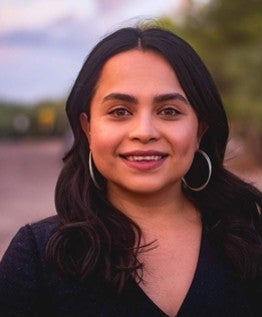
Fellowship Project: The role of environmental reparations in mitigating environmental racism
This study addresses the prevalence of environmental injustice, or environmental racism, in communities racialized as Black, Indigenous, Asian, and Latino. These communities often face the brunt of air pollution, hazardous waste, lack of clean water, and limited green spaces. Despite civil cases and settlements, largely from Clean Air and Clean Water Acts violations, resulting in over $1 billion since 1998, the effectiveness of these reparations on local communities has not been adequately assessed. Remediation efforts are typically underfunded or poorly managed. This research aims to fill a gap by evaluating the impact of environmental reparations on these communities, using data from the U.S. EPA and the American Community Survey. It will also examine the distribution of state-sponsored financial settlements to understand their role in addressing health inequities and the persistent effects of environmental racism.
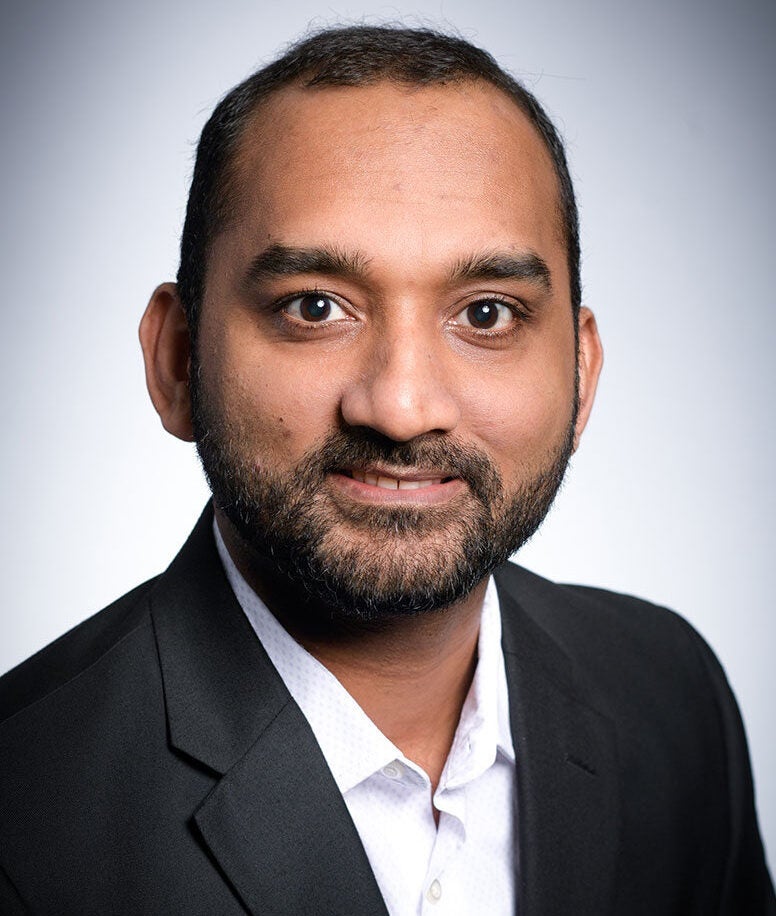
Fellowship Project: Potential adverse impacts of vaping on perinatal health in women who use e-cigarettes during pregnancy
Ruzmyn Vilcassim is an Assistant Professor at the Department of Environmental Health Sciences, UAB School of Public Health. His research primarily involves investigating the health effects associated with exposure to air pollutants, with a focus on particulate matter air pollution and cardiopulmonary health. He earned his Ph.D. in Environmental Health (exposure assessment and health effects) from New York University, and subsequently worked as a Postdoctoral Fellow at the NYU School of Medicine (Pediatrics), where he investigated air quality and health impacts of alternative tobacco products use. His ongoing research at UAB includes studying the adverse cardiopulmonary impacts of e-cigarette use, health risks of e-cigarette use during pregnancy, and testing and validation of low-cost air quality and health monitoring devices. He has previous work experience in environmental pollution prevention, sustainable agriculture, and mitigating climate change impacts on vulnerable communities at international environmental non-profit organizations.
Cohort II, 2018 – 2022
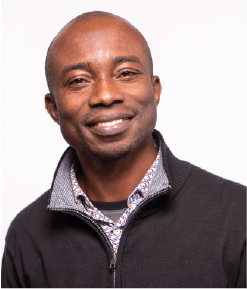
Fellowship Project: Environmental exposures in the home environment and COPD exacerbation
Raphael E Arku is an Associate Professor of Environmental Health Sciences at the University of Massachusetts, Amherst, School of Public Health & Health Sciences. Dr. Arku’s field of teaching and research is primarily in air pollution, with the broad focus of his research on how features of the social and physical environment influence environmental exposures and health in resource-poor settings, with a particular focus on vulnerable populations, both locally and globally. Dr. Arku addresses global health issues like poverty, air pollution, and lack of clean water and fuel in low- and middle-income countries. In the U.S., he researches air pollution in Boston Public Housing, focusing on improving health policies for low-income households. He partners with Baystate Health to study environmental factors affecting asthma, child mortality, and COPD in Western Massachusetts, using innovative technology.
Raphael received his Doctor of Science (ScD) degree in Environmental Health from the Harvard School of Public Health in 2015, and completed a postdoctoral fellowship at The University of British Columbia in 2017.
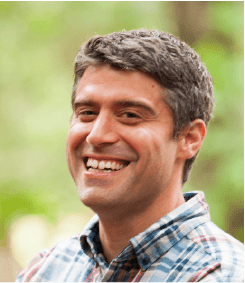
Fellowship Project: Nature exposure, mental health, and equity: a multi-method approach
Gregory Bratman is the Doug Walker Endowed Assistant Professor of Nature, Health, and Recreation in the School of Environmental and Forest Sciences at the University of Washington, where he also works with EarthLab’s Nature for Health – a group of collaborators that work to put science into practice in ways that benefit underserved and other populations. This includes leading a project in which he examines the ways in which wilderness experience may help veterans with PTSD; investigating ways to reduce inequities in health through increased access to nature for underserved populations; and looking to build community partnerships in the greater Seattle area. Gregory’s work takes place at the nexus of psychology, public health, and ecology. His research focuses on examining the ways in which nature experience benefits aspects of mental and physical health. Through empirical and theoretical approaches, he seeks to understand the causal mechanisms that underlie the association of nature contact with cognitive function, mood, and other aspects of health, particularly in urban environments.
Gregory earned his PhD from Stanford University. He continued his work at Stanford as a postdoctoral researcher before joining the University of Washington in the Fall of 2017.
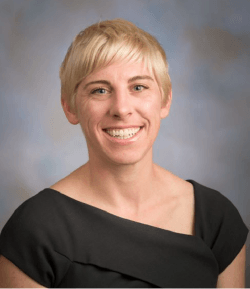
Fellowship Project: Improving Assessment of Residential Exposures for Home Energy Efficiency and Health Studies
Ellison is an environmental engineer, and her current research combines interests and expertise in indoor and outdoor air quality, exposure science, and chemistry. She aims to answer questions relevant to energy, environmental health, and housing policy. She is working to understand patterns and predictors of variability in environmental exposures. Ellison has developed studies through the JPB fellowship that further her understanding of the joint and independent roles of those environmental exposures that she observes in context with other social, physical, and psychological stressors. A common setting for her work has been low- to moderate-income housing in the U.S. and other countries outside the U.S.
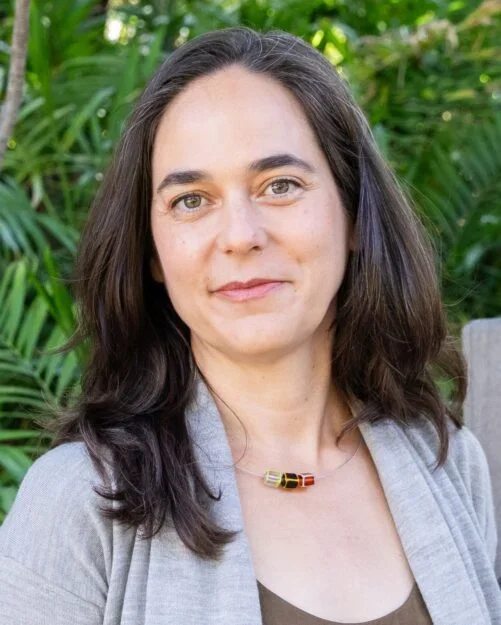
Fellowship Project: From the city to the cell: neighborhood determinants of adverse birth outcomes
Lara Cushing’s research focuses on the causes and consequences of social inequalities in exposure to environmental hazards. She has assessed the health impacts of environmental and climate-related exposures for pregnant people and infants, and investigated questions of environmental justice in the context of air pollution and hazardous sites, urban greenspace and heat islands, oil and gas production, drinking water quality, and climate change. She is active in community-engaged efforts to develop analytical frameworks and decision-support tools to advance environmental and climate justice policy.
Dr. Cushing has received early career fellowships from the Robert & Patricia Switzer Foundation and the EPA’s STAR program. She contributed to the U.N. IPCC Fourth Assessment Report and joined California’s Biomonitoring Scientific Guidance Panel in 2022. In 2021, she won the inaugural Best Environmental Justice Paper award from the International Society of Environmental Epidemiology.
Dr. Cushing earned her BS in Molecular Environmental Biology, MPH in Epidemiology, and PhD in Energy & Resources from the University of California, Berkeley. Prior to UCLA, she taught on the faculty at San Francisco State University.
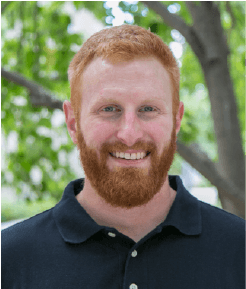
Agency Fellow
Fellowship Project: Tracking Stakeholder Perceptions and Outcomes in the Implementation of Amendment 23 (In collaboration with Fellow Kirk Jalbert)
Matt received his PhD in Sociology from the University of New Hampshire in 2015. His research has focused on public perceptions of climate change and other environmental issues, such as extreme weather events, urban development and sprawl, and commercial fisheries management. More broadly, he specializes in environmental and community sociology and has interests in environmental justice, natural resources, and public attitudes towards environmental policies. He recently completed a postdoctoral appointment at the Yale School of Forestry and Environmental studies where he studied public attitudes and beliefs about climate change as a member of the Yale Program on Climate Change Communication. Matt’s current research at NEFSC focuses on vessel owners’ and crew members’ demographic characteristics, their job satisfaction, health and well-being, and their beliefs and attitudes about their fisheries and associated management policies and regulations. He is also interested in the socioeconomic and environmental vulnerability and resilience of fishing communities. He currently serves on the Groundfish Plan Development Team and is involved in the development and implementation of the Survey on the Socio-Economic Aspects of Commercial Fishing Crew in the Northeast and Mid-Atlantic.
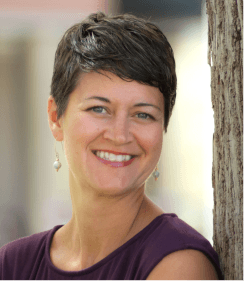
Fellowship Projects: 1) Assessing Landowner Perceptions of Environmental and Public Health Risks When Signing Easements Agreements for Oil and Gas Pipelines
2) Debts & Reciprocity vs. Deficits & Harms: Developing EJ Communication Tools to Catalyze Action
3) Housing Policy as Public Health Policy: Building a Community-Engaged Impact Evaluation of Denver’s Sun Valley Public Housing Redevelopment Project
As a JPB fellow, Dr. Dickinson pursued collaborative, community-engaged research partnerships to improve health and reduce health disparities in Colorado. An environmental economist by training, Dr. Dickinson’s interdisciplinary research examines how people perceive and respond to risks, and the impacts of policies and interventions on environmental health, and social outcomes. Several past and current projects have addressed problems at the nexus of environmental quality, economic development, and human health, including water and sanitation, household energy and air pollution, and mosquito-borne diseases. Other branches of research have looked at responses to natural hazards, including wildfire and hurricanes.
Katie holds a BS and MS in Earth Systems from Stanford and a Ph.D. from Duke’s Nicholas School of the Environment. She completed postdoctoral training as a Robert Wood Johnson Health and Society Scholar at the University of Wisconsin and later at NCAR. Before joining…

Fellowship Project: A Multimethod Approach to Assess Sanitary Risks and Microbial Exposures Associated with Waterborne Illnesses and Infrastructure Management in Baltimore, Maryland
Marccus’ primary research interests include infrastructure planning and management, social vulnerability to disaster, environmental justice, sustainable development, public health and the built environment, and citizen science. He utilizes a mixed-methods approach to his research that includes both quantitative and qualitative methods such as multiple regression, cross-sectional research, spatial mapping, in-depth interviewing, and participatory action research. He ensures that low-income and communities of color are considered regarding environmental hazards. He investigates how the condition and distribution of critical infrastructures—such as stormwater services, energy, public transit, and green spaces—affect hazard exposures, disaster impacts, public health outcomes, and community resilience.
Marccus is a founding fellow of the William Averette Anderson Fund (the first national interdisciplinary organization working to increase the number of underrepresented persons of color in the field of disaster research, practice, and pedagogy) and serves as a board member for the Fund. He holds a Ph.D. in Urban and Regional Science and a Master of Public Health, both from Texas A&M University. He completed his undergraduate work at the University of North Texas.
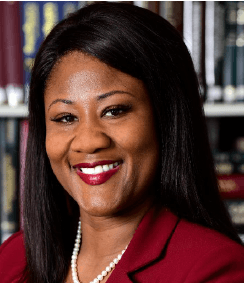
Agency Fellow
Dr. Chandra L. Jackson is an Earl Stadtman Tenure-Track Investigator who leads the Social and Environmental Determinants of Health Equity group in the Epidemiology Branch of the National Institute of Environmental Health Sciences with a joint appointment in the intramural program of the National Institute of Minority Health and Health Disparities. She investigates how physical and social environmental factors contribute to racial, ethnic, and socioeconomic disparities in sleep health and the related risk of chronic cardiometabolic diseases. Using observational epidemiology and mixed-methods approaches, she aims to develop evidence-based, multi-faceted interventions that inform policies and practices to enhance population health and reduce unjust health disparities.
Her research has been presented at international and national scientific conferences and her studies have been published in scientific journals (e.g. the New England Journal of Medicine, Lancet, JAMA Internal Medicine, and the American Journal of Epidemiology). Her findings have also been discussed in major media outlets such as the US News & World Report and The New York Times.
She has a Master’s degree in Cardiovascular Epidemiology from the Harvard T.H. Chan School of Public Health and a PhD in Cardiovascular Epidemiology from The Johns Hopkins Bloomberg School of Public Health.
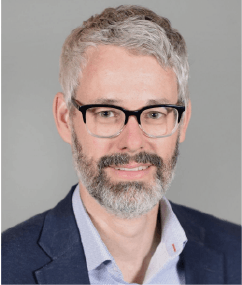
Projects: 1) Assessing Landowner Perceptions of Environmental and Public Health Risks When Signing Easements Agreements for Oil and Gas Pipelines
2) Exploring the Use of a Low-Cost Photopaper Tool for Citizen Science Detection of Urban Gas Leaks
3)Tracking Stakeholder Perceptions and Outcomes in the Implementation of Amendment 23
Kirk Jalbert’s research explores public engagements with environmental science and governance that emerge from energy justice movements and how these are shaped by data mobilizations, information technologies, and grassroots scientific research efforts. His work additionally seeks to understand the social, political, and technical dynamics that make for effective academic, nonprofit, and community-based research partnerships.
Before joining the University at Buffalo, he was an Assistant Professor at Arizona State University, where he directed the Civic Science for Environmental Futures Collaborative, focusing on participatory action research for equitable environmental futures. He also worked in the nonprofit sector as the Manager of Community-Based Research and Engagement for the FracTracker Alliance, facilitating projects in data transparency, mapping, and digital storytelling.
Kirk holds a Ph.D. in Science and Technology Studies from Rensselaer Polytechnic Institute, an M.F.A. in Media Arts from the School of the Museum of Fine Arts at Tufts, and a B.S. in Computer …
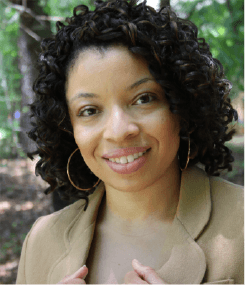
Viniece Jennings is the Deputy Director at the NOAA Center for Coastal and Marine Ecosystems. The center is led by FAMU (Florida Agricultural and Mechanical University) and includes 5 partner institutions. Her role is to provide executive leadership for the center in administering operations, education, research, and professional development for students. Prior to taking this position, Jennings was an Assistant Professor at Agnes Scott College, where she focused on the intersection between green space, health, and social justice. She was also an expert featured in Atlanta Magazine, Georgia Public Broadcasting, and Live Happy Magazine for her contributions to research on city parks and well-being. Prior to her role at the USDA, she interned at the White House Council on Environmental Quality for the Obama Administration.
In 2015 and 2017, her research was recognized by the National Recreation and Parks Association for its relevance to health, social equity, conservation, and resiliency. It was also cited in the EPA’s Environmental Justice Research Agenda. Additionally, she received the 2017 ‘Hidden Treasure’ award for Women of Excellence in Science from a foundation in Atlanta.
She earned her Ph.D. in environmental science with a focus on policy and management from Florida A&M University. As lead author of key articles, she has enhanced our understanding of ecosystem services, health disparities, and social determinants of health.

Agency Fellow
Leah Lozier is Social Science Analyst in the Program Evaluation Division of the Office of Policy Development and Research at the U.S. Department of Housing and Urban Development (HUD). Leah entered the Federal government in 2014 as a Presidential Management Fellow.
Leah’s research is primarily focused on the intersection between housing and health. She manages the Department’s Supportive Services Demonstration and Evaluation: The demonstration leverages HUD’s properties as a platform for the coordination and delivery of services to better address the interdependent health and supportive service needs of its older residents. The demonstration runs for three years and funds a full time-resident wellness director and part-time wellness nurse to work in HUD-assisted housing across seven states. The goals are to promote aging in place and improve housing stability, wellbeing, health outcomes, and reduce unnecessary or avoidable healthcare utilization. HUD designed a rigorous cluster-randomized controlled evaluation to assess fidelity to the demonstration model, successes and challenges to implementation, and use HUD administrative data and Medicare and Medicaid claims data to measure impacts on healthcare utilization.
Leah earned her Ph.D. in neuroscience from Georgetown University and holds a B.S. in psychology from Virginia Tech.
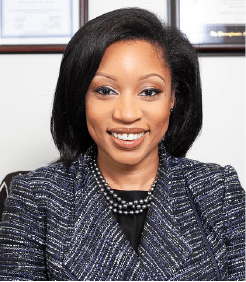
Dr. Valerie Newsome Garcia is the Community Transformation Strategist for NHSA – AIM CCI. Prior to joining National Healthy Start Association, she has held faculty appointments at NYU School of Medicine, Morehouse School of Medicine, Brooklyn College.
Her research focuses on addressing the social, environmental, and structural determinants of health in underserved communities. She employs the PEN-3 cultural model to identify not only the negative implications of culture on health (as is often the focus), but also the positive aspects of culture that can be harnessed to promote the improvement of community health. Her past work has explored the environmental barriers to healthy eating in NYC public housing, geography and cultural factors related to healthy sleep behavior, the relationship between neighborhoods and cardiovascular health, and sociocultural factors related to increased HIV risk among African-American women.
Dr. Newsome Garcia completed her doctoral training in Biobehavioral Health (Ph.D.) at Penn State University, and holds degrees in Psychology (B.S., M.S.) from Florida A&M University. She also holds an appointment as Research Assistant Professor in the Division of Health and Behavior in the Department of Population Health at NYU School of Medicine, and has served as adjunct faculty at NYU-Steinhardt and Brooklyn College.
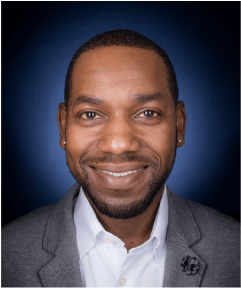
Fellowship Topic: Exploring Associations between Temperature Exposure, Housing Quality, and Health During the Winter in Energy Poor Households
Tony G. Reames is Tishman Professor of Environmental Justice at the University of Michigan’s School for Environment and Sustainability, where he directs the Urban Energy Justice Lab. He is affiliated with the Center for Sustainable Systems, Energy Institute, Center for Local, State and Urban Policy, and Poverty Solutions initiative at University of Michigan. He is also a member of Scholars Strategy Network and the international Just Transition Initiative.
Dr. Reames recently took a leave of absence from his responsibilities at SEAS to serve as Principal Deputy Director for State and Community Energy Programs, and Deputy Director for Energy Justice at the U.S. Department of Energy. He led the Office of Energy Justice Policy and Analysis in the Office of Economic Impact and Diversity. He returned to SEAS as the new director of the SEAS Detroit Sustainability Clinic.
Tony researches energy justice, focusing on equitable access to affordable, clean energy technology. His work uses energy analysis, GIS, and policy analysis to examine spatial, racial, and socioeconomic disparities in urban energy dynamics and their effects on health and well-being. Tony holds a PhD in public administration from the University of Kansas, a Master’s in engineering management, and a Bachelor’s in civil engineering.
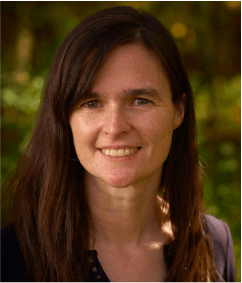
Fellowship Project: Understanding the roles of objective versus perception of green space exposure on stress and mental health
Dr. Reid is an associate professor in the Geography Department at the University of Colorado, Boulder. Dr. Reid is also a Faculty Associate of the Institute of Behavioral Science, an interdisciplinary research institute at the University of Colorado Boulder, and also leads the Health and Environment Team at Earth Lab. Although trained in environmental exposure assessment and environmental epidemiology within a School of Public Health, Dr. Reid applies a geographical lens to her research, employing a variety of quantitative methods in her research including machine learning, spatial analysis, and epidemiological methods. Her research examines how environmental and social exposures affect population health, particularly in relation to climate change. She leads studies on green space exposure and its health impacts, focusing on how different measures of neighborhood influence these relationships. Additionally, she investigates the health effects of wildfire smoke, a growing source of air pollution in the western U.S.
She received her MPH and PhD in Environmental Health Sciences from the University of California, Berkeley and did her post-doctoral training at Harvard University as a Robert Wood Johnson Foundation Health and Society Scholar. She has a Bachelor’s of Science in Environmental Science from Brown University.

Fellowship Project: Gauging Effects of Neighborhood Trends and Sickness Study
Jennifer D. Roberts is an Associate Professor of Kinesiology at the University of Maryland School of Public Health. She is also the Director of the Public Health Outcomes and Effects of the Built Environment (PHOEBE) Laboratory. Her research interests focus on the relationship between the built environment and physical activity in addition to its impact on obesity and other public health outcomes. Her research focuses on the dynamic interplay between environmental, social, and cultural factors influencing physical activity, using empirical evidence to understand complex health outcomes among adults and children. She received a University of Maryland grant to study the health impacts of the new 16.2-mile Purple Line light rail, which operates in Prince George’s County, Maryland—a community with a high percentage of African American and Hispanic residents. She leads the Purple Line Light Rail Impact on Neighborhood, Health and Transit (PLIGHT) Study, which examines changes in light rail use, physical activity, obesity, and cardiovascular risks among local adults, while also exploring how contextual factors influence these health outcomes.
She graduated from Buffalo Seminary High School and earned her Bachelor of Arts degree from Brown University. She holds a Master of Public Health from Emory University and a Doctor of Public Health from Johns Hopkins University.
Cohort I, 2014 – 2018
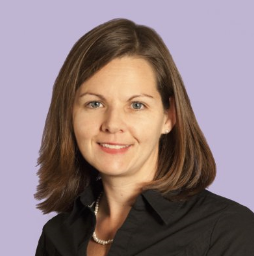
Fellowship Project: Albany Infant and Mother Study (AIMS)
Allison is a social epidemiologist with training in epigenetics, cardiovascular disease and neurodevelopment. She received her doctoral degree from the Harvard School of Public Health and completed postdoctoral fellowships at Harvard and also at the Geisel School of Medicine at Dartmouth. Through collaborative research and mentorship from our Fellowship Program, Allison built skills in community engagement and developed expertise around environmental exposure assessments for metals and air pollution.
As psychosocial stress and exposure to environmental contaminants tend to co-occur among disadvantaged groups, one project Allison launched during her fellowship was a study of prenatal metal exposure and maternal experiences of racial discrimination and stress in relation to infant health among a racially and socioeconomically diverse community in Albany, NY. In particular, she study epigenetic alterations as mechanisms that may help explain how prenatal stress and metal exposures can become biologically embodied and contribute to disparities in child growth and neurodevelopment.
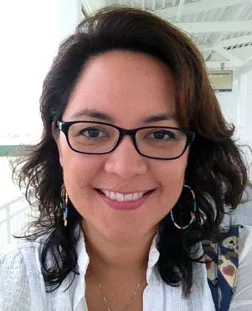
Fellowship Project: Indigenous Home Health: Community Driven Approaches to Wellness
Dr. Belcourt (Aímmóniisiaki/Mdbogay-Otterwoman) Chairs Native American Studies and is an American Indian Professor in the College of Health at the University of Montana’s School of Public and Community Health Sciences Departments (enrolled tribal member of the Three Affiliated Tribes, Mandan, Hidatsa, Blackfeet, and Chippewa descent). Raised on the Blackfeet reservation, she is an alumnus of Browning High School and the University of Montana. Her doctorate is in clinical psychology. Research and clinical priorities include mental health disparities, environmental public health, trauma, post-traumatic stress reactions, risk, resiliency, and psychiatric disorder within the cultural context of American Indian communities.
Dr. Belcourt has conducted grant-funded collaborative research projects with Native communities at UM and during work at the University of Colorado Denver’s Centers for American Indian and Alaska Native Health. Dr. Belcourt’s doctoral training is clinical psychology. She has experience conducting social science CBPR research, psychotherapy (group and individual); quantitative data collection and analysis; qualitative and mixed data collection and analysis; and tribal community based participatory/engaged research with tribal communities in United States.
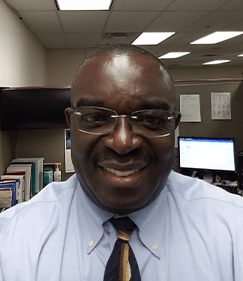
Agency Fellow
Kofi Berko, Jr is an environmental scientist with the Office of Lead Hazard Control and Healthy Homes at the US Department of Housing and Urban Development headquarters in Washington DC. He develops Notice of Fund Availability (NOFA) for healthy homes and lead technical studies, manages the review and selection process and manages some of the resulting cooperative agreements between the successful applicants and HUD. All the cooperative agreements for the technical studies are conducted in low-income communities. He holds a B.Sc. (Honors) in Biochemistry from the University of Science & Technology, Ghana, a Masters in Public Administration and PhD in energy and environmental policy from the University of Delaware, Newark, Delaware. His research interests include the health impacts of energy efficiency and environmental programs, impact of residential hazards on occupants’ health and health disparities in low-income and/or minority populations. Past research activities includes studies of asthma and environmental allergens identification and controls, carbon monoxide detection, measurement and control, lead-based paint inspections, remediation and regulation, household chemicals toxicity, mold identification and control and petroleum products releases remediation and management.
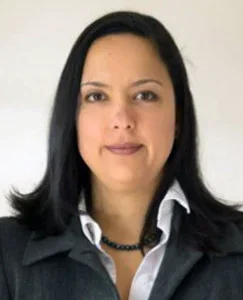
Fellowship Project: Assessing the Role of Occupation on Home Exposures in a Disadvantaged Community
Dr. Ceballos strives to better understand the connection between exposure to hazards in the workplace, the community, and in the home, where workers may unwittingly bring home pollutants and transfer hazards to their children. She earned a Master’s degree in atmospheric chemistry and a PhD in Environmental and Occupational Hygiene. She is also a board certified industrial hygienist.
She became a JPB Environmental Health Government Fellow in 2014 because she worked at the National Institute for Occupational Safety and Health (NIOSH) as an Industrial Hygienist conducting health hazard evaluations and providing industrial hygiene technical and consultative assistance to Federal, State, and local agencies, labor, industry, and other groups or individuals to control occupational health hazards and to prevent related trauma and diseases.
Dr. Ceballos became a Harvard Chan visiting scientist from 2015 to 2016 and was a research scientist from 2017 to 2018. Dr. Ceballos is interested in occupational health and safety research related to exposure assessment, field sampling and analysis, workplace interventions, best practices, risk communication, and outreach. She has been particularly interested in multiple chemical exposures, dermal protection, green industries, and occupational health disparities.
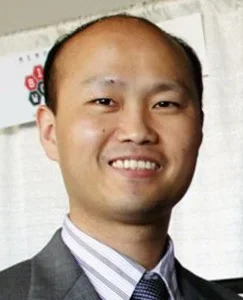
Fellowship Projects: 1) Energy, Environment and Health in Affordable Housing Development
2) Indoor VOC Exposure and Home Energy Insecurity in an Environmental Justice Community
3) The Role of Environmental Exposure Reduction (REER) in a Multicomponent Asthma Intervention
Dr. Chunrong Jia is Professor of Environmental Health (EH) in University of Memphis School of Public Health. His research interests are in human exposure to air pollutants and the associated health effects. The air pollutants he has studied include volatile organic compounds (VOCs), carbonyls, polycyclic aromatic hydrocarbons (PAHs), particulate matters (PM), brominated flame retardants (BFRs), and heavy metals. His research has addressed many priority EH areas, such as air toxics, indoor air quality (IAQ), environmental tobacco smoke (ETS), pollutant mixtures, environmental epidemiology, and environmental health disparities.
Dr. Jia received his B.S. in Environmental Science and M.S. in Environmental Engineering from Nankai University, Tianjin, China, and Ph.D. in Environmental Health Sciences from University of Michigan, Ann Arbor, Michigan. He joined the University of Memphis in 2009 as the first and only EH faculty. He helped establish a new EH program by designing EH curriculum, building an environmental laboratory, conducting air pollution research, and training EH concentration students.
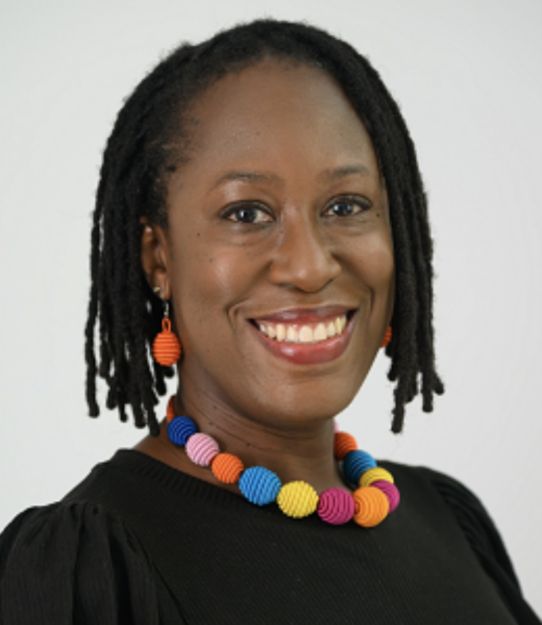
Fellowship Project: Environmental Health Interactions: Examining the Effect of Air Pollution, Stress and Socioeconomics on Cardiovascular Health
Christina H. Fuller, ScD, is an Associate Professor in the School of Environmental, Civil, Agricultural and Mechanical (ECAM) Engineering within the University of Georgia College of Engineering. Dr. Fuller conducts research on environmental engineering, health and justice, specializing in air pollution exposures and health impacts. She has training in engineering, exposure science and epidemiology, which she uses to investigate air pollution exposures, pollution reduction strategies, health disparities and social-environmental interactions. Dr. Fuller is committed to community engagement and the democratization of data and research. Her work has been funded by the National Institute of Environmental Health Sciences (NIEHS), National Institute on Minority Health and Health Disparities (NIHMD), the National Science Foundation and private foundations. She actively engages in a variety of translational research activities through community environmental education and board service. Dr. Fuller serves on the Clean Air Scientific Advisory Committee (CASAC) of the US Environmental Protection Agency. She earned master’s and doctoral degrees in environmental health from the Harvard T.H. Chan School of Public Health and a bachelor’s degree in environmental engineering from Northwestern University.
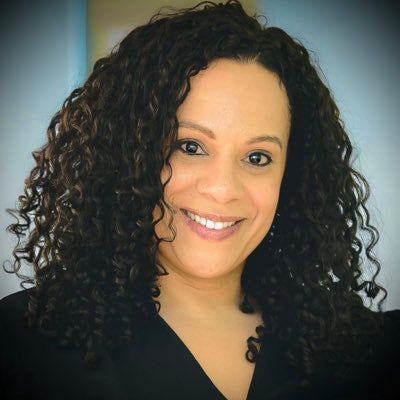
Fellowship Projects: 1) Beyond Implementation: Evaluating Compliance and Refining Enforcement of Smoke-free Housing Policy in Low-income Multiple Unit Housing Settings Study 2) National Energy Insecurity Study
Dr. Hernández conducts research at the intersection of energy, equity, housing and health (E2H2). A sociologist by training, her work focuses on the social and environmental determinants of health by examining the impacts of policy and place-based interventions on the health and well-being of socioeconomically disadvantaged populations. A leader in the field, Dr. Hernández has advanced the concept of energy insecurity to reflect challenges associated with meeting basic household energy needs. Her research has explored its social and health implications using qualitative and quantitative methods. Her cutting-edge work has been published in leading academic journals including the American Journal of Public Health, Energy Policy, Social Science and Medicine, and Health Affairs. Furthermore, her work has been supported by the National Institutes of Health, Housing and Urban Development and National Science Foundation as well as philanthropic organizations.
Dr. Hernández completed her doctoral training in Sociology at Cornell University (2010), her undergraduate degree at Hunter College- City University of New York (2002) and is a product of the New York City public school system.

Agency Fellow
Fellowship Project: Identifying community needs and developing emergency response strategies for coastal fishing communities impacted by harmful algal blooms
Growing up in Australia and surrounded by water, Stephanie Moore understood the intimate and inextricable connection between the oceans and human health. Just as the oceans can nourish and sustain, they can also harbor public health risks. Stephanie works with coastal communities to build resilience to blooms of toxic algae that restrict access to important commercial, recreational and subsistence fisheries. Her research focuses on providing early warning of toxic blooms and identifying risk reduction strategies for fishery-dependent communities, including Native American communities, many of which already face significant social and environmental health challenges that are expected to worsen as a result of climate change. Stephanie Moore is a Research Oceanographer at the National Oceanic and Atmospheric Administration, National Marine Fisheries Service, Northwest Fisheries Science Center. Stephanie earned her BSc in marine biological environments (2000) and PhD in biological science (2005) at the University of New South Wales in Australia. She completed postdoctoral training at the University of Washington and the University Corporation for Atmospheric Research.
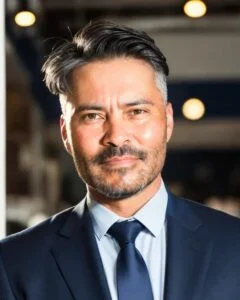
Fellowship Project: Life stress, particulate matter exposure, and inflammatory reactivity
Dr. Hector Olvera Alvarez is an interdisciplinary health scientist with interests in environmental health, health equity, and psychological wellbeing, currently serving as the Senior Associate Dean for Research at the School of Nursing, Oregon Health and Science University. His academic journey emerged from his graduate experiences in Environmental Engineering and Sciences from the University of Texas at El Paso, enriched by post-doctoral training experiences in epidemiology, lung dosimetry, psychological stress and well-being, and public health.
During his time as a JPB Environmental Health Fellow, Dr. Olvera Alvarez expanded his research horizons significantly. He delved deeply into how various environmental factors – natural, built, and social – intertwine and influence our health and well-being throughout our lives. A particular focus of his work has been on the profound impact of early-life psychosocial stress on the risk of chronic illness in later years via a sensitization to the environment. Specifically, his innovative research explores how childhood stress affects adult disease through neuro-immunological mechanisms that cause hypersensitivity and drive systemic inflammation.
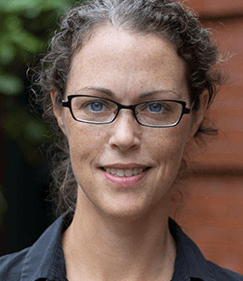
Fellowship Project: Prevalence and Risk Factors for Chronic Kidney Disease of Non-Traditional Etiology in the US
Madeleine Kangsen Scammell is an Associate Professor of Environmental Health at Boston University School of Public Health (BUSPH) where she also leads the Community Engagements Core of the Boston University Superfund Research Program and the Center for Research on Environmental and Social Stressors in Housing across the Lifecourse (CRESSH), a joint center between BUSPH and Harvard TH Chan School of Public Health.
Madeleine’s research includes the use of qualitative methods in the area of community-driven environmental health and epidemiologic studies. Prior to the JPB Fellowship, she was the Principal Investigator of an EPA STAR grant to study cumulative exposures to chemical and non-chemical environmental stressors in urban populations. This grant was a community-based participatory research project located in Chelsea, MA and conducted in partnership with the Chelsea Collaborative and the Chelsea Green Space (now Green Roots).
She earned her Doctor of Science degree from Boston University School of Public Health. Since she joined the faculty, she has received two teaching awards for Foundations of Environmental Health and another for Environmental Health, Science, Policy and Law. During her fellowship she designed and began teaching a new course, Community Engaged Research: Theory, Methods and Applications.
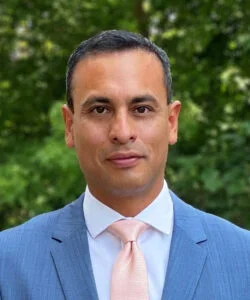
Fellowship Project: Nuts and Olestra for Persistent Organic Pollutant Reduction (NO-POPs) Trial: A Pilot Investigation
Dr. Suarez is the Division Lead of the Climate and Environmental Health Teaching Division and the Director of the Climate and Environmental Health Research Program at the H. Wertheim School of Public Health and Human Longevity Science at UC San Diego. His main research interests involve understanding the environmental determinants of child and adult health in vulnerable populations. As the Principal Investigator of the NIH-funded Study of Secondary Exposures to Pesticides among Children and Adolescents (ESPINA), he focuses on the impact of pesticide exposure on health, assessed from childhood to adulthood in Pedro Moncayo, Ecuador.
He is also involved in community-based participatory processes in Ecuador in collaboration with Fundación Cimas del Ecuador; he collaborates on rural health surveys and mental health screenings, collecting data from 2004-2017 with geocoded information from thousands of individuals. Additionally, he leads the Nuts and Olestra for Persistent Organic Pollutant Reduction (NO-POPs) trial, investigating the effects of dietary interventions on the excretion of Persistent Organic Pollutants in older adults in San Diego, CA. Suarez also leads work on engineering solutions for improved human resilience to hot climates and serves as a Governor appointee to the Scientific Guidance Panel for the California
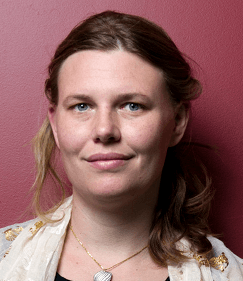
Fellowship Projects: 1) Open Water Data-Community Visualization of Clean Water Act Violations Project
2) Citizen Science Research
Sara seeks to develop new modes of studying and intervening in large-scale social and environmental health issues such endocrine disrupting chemicals and Shale Gas extraction through a fusion of social scientific, scientific and art/design practices. Sara is a cofounder of Public Laboratory for Open Technology and Science, a non-profit that develops open source, Do It Yourself tools for community-based environmental analysis.
Combining art, social theory of science and environmental science Sara is developing platforms and tools for citizen science that make environmental health research more collective and performative. As an Associate Professor at Northeastern University with joint appointments Sociology/Anthropology and Health Sciences, Sara is building a collaborative environmental health research center: the Social Science Environmental Health Research Institute (SSEHRI). Previously, Sara taught Science and Technology Studies (STS) and BioArt in Rhode Island School of Design Digital+Media Department.
She received her Ph.D. from MIT’s History, Anthropology, Science, Technology and Society (HASTS) Program in 2011.
